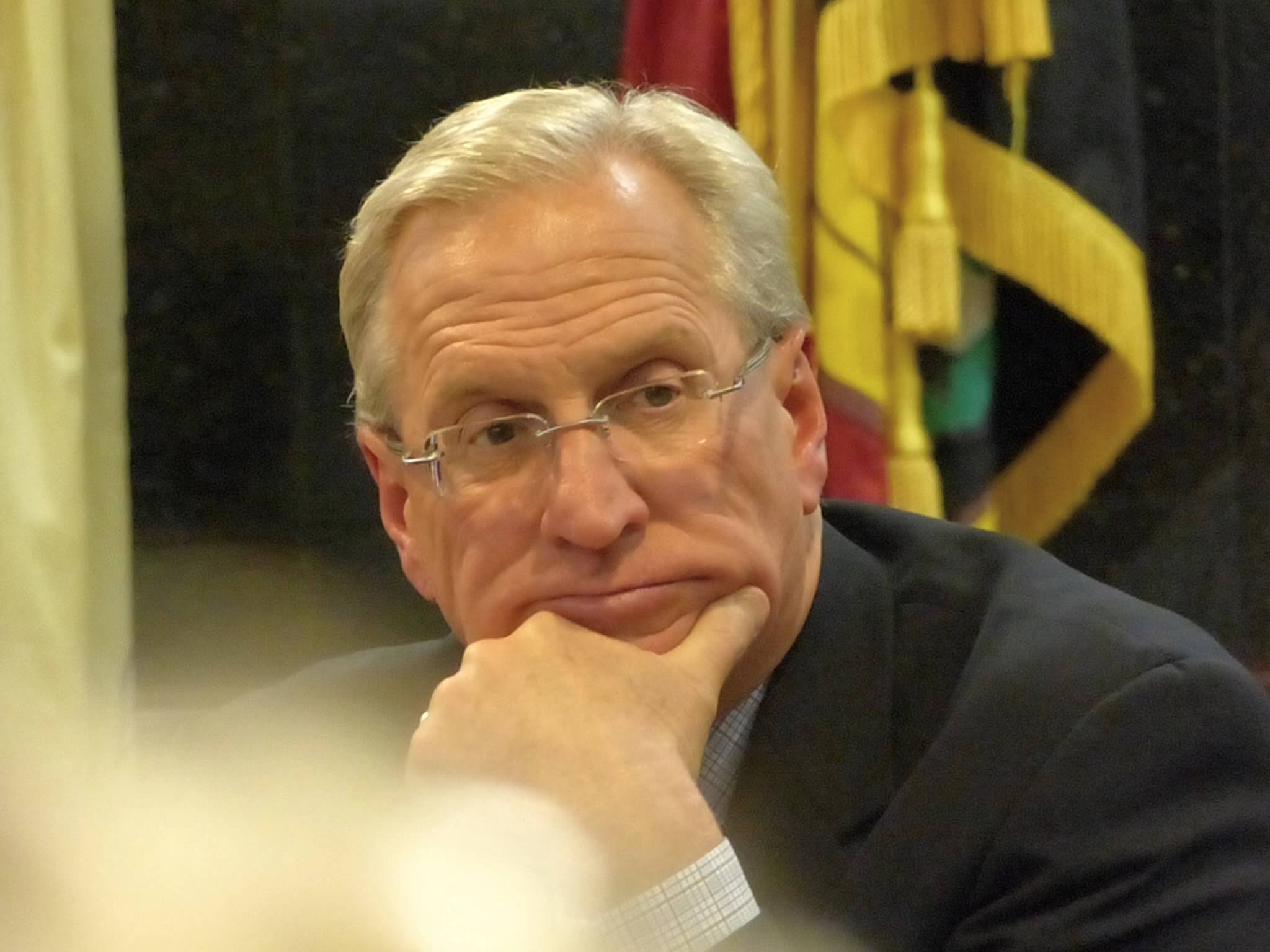Every Veterans Day and Memorial Day, when Americans gather at parades and other ceremonies, I’ve often pondered: What must it be like to be chosen to speak at such an event?
No words can ever express the sentiments of veterans who stand there, watching, listening, wondering, remembering, and trying to forget.
Still, words must be spoken. Observations are expected at times such as these by mothers and fathers, wives and husbands, sisters and brothers, and neighbors. Many of them never served but knew someone who did.
They hear politicians reach lofty peaks pontificating about such things as patriotism, honor, glory, and freedom. Those things are expected of those who serve in the public eye, who must mind their words lest they be used against them at election time.
Veterans stand proud as the “Star Spangled Banner” is played or sung. They will rise, some from wheelchairs to salute as the colors pass while others stay seated or watch the flag as if it were another billboard to be ignored.
As each veteran raises his or her hand to salute, they’ll be carried back to another place, another time when they were younger and, yes, scared. Of course, they wouldn’t admit it then, but now, older and out of harm’s way, they can admit they were terrified to die.
Oh, how time alters things. Back then, the “old” guys were maybe 23 or 24 years old. Back then, they “knew” young people didn’t die; they had their lives ahead of them.
Such sentiments have been part of the military since battles were fought with swords, long rifles, cannons, mines, and mustard gas.
On Veterans Day and Memorial Day, floral wreaths are often handed to officials. Dutifully and reverently, they will be placed near granite memorials bearing carved names. Those names once were bantered about in school yards and gymnasiums, in back seats of aging vehicles, and other secret places. Now, there are the names for all to see.
Those who care, those who might remember their face or smile or some other stupid thing about them, may shed a tear or two.
But the veterans will do as Mary did with the Baby Jesus, “keep all these things and ponder them” in their hearts.
Veterans will remain silent as the speaker tries their best to impress upon the young, attending on pain of punishment from parents, and what it means to sacrifice.
Sacrifice? What is that? They are of another generation that will, hopefully, never be terrified of dying alone on foreign soil, or standing watch at 2:30 a.m. on the bridge of a ship heading into the abyss lighted only by radar screens and red lights, fearing death at any moment.
The veteran will remain focused, or so it seems. The words are jumbled in their ears. Instead, they hear the cries of their injured buddies. They hear incoming helicopters. They hear a mine explode and wonder if it ripped another buddy to pieces, someone they drank beer with just a few days ago. They will relive the hell of the scenes they have witnessed.
They might wonder why they were spared while a comrade as young and as good-looking as them was killed. Such thoughts last a lifetime.
To them, none of it was about patriotism or honor or any of that stuff. No, to them, it was a matter of survival and helping their buddies to the very end. Their lives were intertwined with each other. The thought of money never entered the picture; not much else mattered back then.
Then, veterans are jolted back to the present when those seven young military riflemen aim skyward and fire three volleys once more. Automatically, veterans will salute as those mournful notes of Taps echo around the area.
No, there’s not much glory in what they remember. Most would not wish to be a speaker to tell what they remembered. Still, they would step forward again in a heartbeat to serve their country.
To a body, they know someone has to speak at such ceremonies, just as they had to serve. That is something veterans know all too well. It was a thankless job, but one that had to be done.








